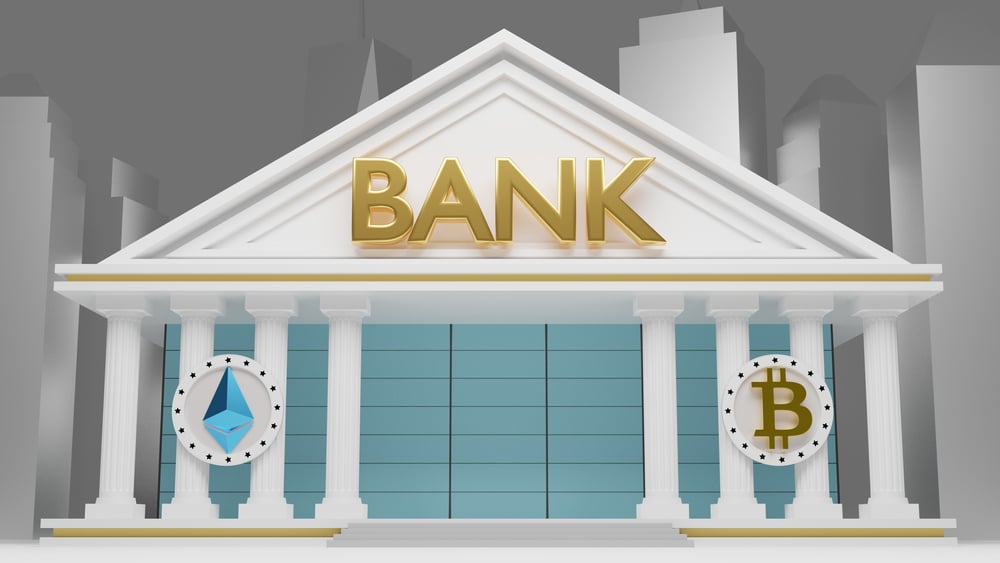Signature Bank’s clients who deal in cryptocurrencies have apparently been given an ultimatum, with a deadline of April 5, to transfer their funds and find a new banking institution.
Failing to do so could result in the closure of their accounts by the federal regulator. This news comes after reports revealing that the United States FDIC has been contacting Signature Bank depositors who were excluded from NYCB’s bid.
The spokesperson confirmed that these deposits belong to clients dealing in digital assets. In what appears to be a significant shake-up for Signature Bank’s cryptocurrency clients, this development may cause some uncertainty and concern.
What is the Current Predicament?
The Federal Deposit Insurance Corporation’s decision to contact depositors not included in NYCB’s bid suggests that there is a real possibility of disruptions to digital asset-related banking activities.
Therefore, it is essential for Signature Bank’s cryptocurrency clients to act swiftly and ensure that their funds are transferred to a suitable banking institution before the April 5 deadline.
It remains to be seen what implications this will have for the wider crypto industry and whether other banks will follow suit.
If someone’s account with Signature Bank has been closed, they will receive a check delivered to their registered address.
However, if the account holders are unable to transfer their funds, it’s crucial to ensure that their registered address is up-to-date. This will ensure that they receive their funds in a timely manner and without any complications.
It is important to note that while NYCB has acquired most of the deposits and loans held by Signature Bank, the deal does not include a significant portion of approximately $4 billion in deposits linked to Signature Bank’s digital banking business.
In addition to the recent closure of New York-based Signature, the fate of its innovative payments platform Signet remains uncertain.
While Signet leverages blockchain technology to facilitate seamless, real-time payments without any transaction fees or limits, it was unfortunately excluded from the deal.
It’s important to note that Signature’s closure was prompted by concerns from New York regulators who feared a potential bank run and perceived the company as a “systemic risk” to the broader U.S. economy.
Despite these worries, many in the fintech community remain optimistic about the potential for blockchain-based payments platforms like Signet to transform the traditional financial landscape.
The Federal Deposit Insurance Corporation assumed the role of the receiver for Signature bank, charged with the management of its assets and properties.
Will Anyone Take Over Signature Bank?
In a bid to streamline the acquisition process, the FDIC requested bids from banks interested in acquiring Signature’s assets by March 17.
However, it’s worth noting that the agency would only consider bids from those with an existing bank charter.
This caveat aimed to ensure that only financially sound and reputable institutions take over the failed bank’s assets, assuring depositors of the safety and security of their funds.
As the acquisition process progresses, the FDIC will continue to play a crucial role in ensuring that the interests of all stakeholders, including customers and creditors, are protected.
With its vast expertise in bank management and oversight, the regulatory body is well-positioned to navigate the complexities of this process and deliver a favorable outcome for all parties involved.
The closure of Signature Bank sent shockwaves through the banking sector after customers withdrew large sums of money following the collapse of Silicon Valley Bank.
To contain the panic and prevent further contagion in the industry, regulators were forced to shut down Signature Bank, marking the second-biggest bank failure since the closure of Washington Mutual.
Final Thoughts
While bank failures have become a somewhat common occurrence, with over 550 banks shutting down during the last 2 decades, Signature’s collapse is notable due to its connection to the SVB debacle. This prompted a controversial rescue effort that raised questions about the limits of the FDIC’s power and which banks are considered too big to fail.
At Tokenhell, we help over 5,000 crypto companies amplify their content reach—and you can join them! For inquiries, reach out to us at info@tokenhell.com. Please remember, cryptocurrencies are highly volatile assets. Always conduct thorough research before making any investment decisions. Some content on this website, including posts under Crypto Cable, Sponsored Articles, and Press Releases, is provided by guest contributors or paid sponsors. The views expressed in these posts do not necessarily represent the opinions of Tokenhell. We are not responsible for the accuracy, quality, or reliability of any third-party content, advertisements, products, or banners featured on this site. For more details, please review our full terms and conditions / disclaimer.
